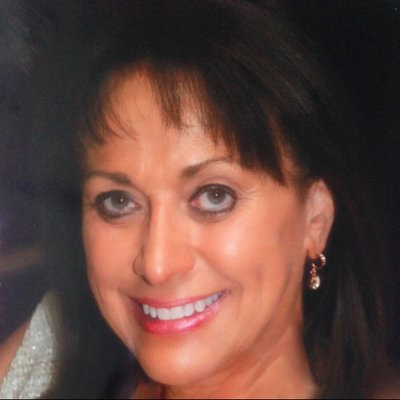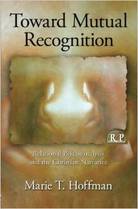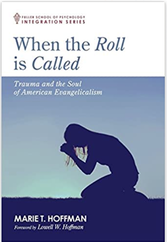Marie Hoffman, Ph.D.
|
I am a clinical psychologist and psychoanalyst, practicing at the Brookhaven Center for Counseling and Development in Allentown, PA, which my husband of 47 years, Lowell Hoffman, and I founded. There, along with our associates, we provide a depth psychotherapy that is sensitive to peoples' spirituality. My husband and I are both graduates of New York University's Postdoctoral Program in Psychotherapy and Psychoanalysis, and we also provide training and consultation in psychoanalytic psychotherapy through Brookhaven Center. |
Professional and Academic Roles
Marie maintains a full-time practice at The Brookhaven Center and was the co-founder of Brookhaven Institute for Psychoanalysis and Christian Theology (BIPACT). She was the 2006-2007 Stephen A. Mitchell Scholar, is the author of Toward Mutual Recognition: Relational Psychoanalysis and the Christian Narrative, numerous professional papers, and frequently presents at academic conferences. She is a graduate of and Clinical Assistant Professor of Psychology (Adjunct) at the New York University Post-Doctoral Program in Psychoanalysis and Psychotherapy. She has been mentored/supervised in psychoanalytic training by Lewis Aron, Ph. D. , Jessica Benjamin, Ph. D. , Jody Davies, Ph. D. , Nancy McWilliams, Ph. D. , Spyros Orfanos, Ph. D. , and Neil Skolnick, Ph. D. Marie was also the co-founder of the Society for Exploration of Psychoanalytic Psychotherapies and Theology (SEPTT), and has served as adjunct faculty at Rosemead School of Psychology and Fuller Seminary School of Psychology.
Dr. Hoffman holds licenses in Pennsylvania, New York, and is registered as a Telehealth provider in the state of Florida
(https://flhealthsource.gov/telehealth/).
Dr. Hoffman holds licenses in Pennsylvania, New York, and is registered as a Telehealth provider in the state of Florida
(https://flhealthsource.gov/telehealth/).
Psychoanalysis and Religion
Over the last decade, sensing the deep lack of dialogue between the disciplines of psychoanalysis and religion, I have published articles on their intersection, focusing on the enrichment these disciplines can bring to each other. In 2006, I had the honor of being named Stephen Mitchell Scholar, and have been a visiting professor at Rosemead School of Psychology and Fuller Theological Seminary as well as a visiting lecturer at Wheaton Graduate School.
BOOKS
|
Purchase from Amazon
|
Ever since its nascent days, psychoanalysis has enjoyed an uneasy coexistence with religion. However, in recent decades, many analysts have been more interested in the healing potential of both psychoanalytic and religious experience and have explored how their respective narrative underpinnings may be remarkably similar.
In Toward Mutual Recognition, Marie T. Hoffman takes just such an approach. Coming from a Christian perspective, she suggests that the current relational turn in psychoanalysis has been influenced by numerous theorists - analysts and philosophers alike - who were themselves shaped by an embedded Christian narrative. As a result, the redemptive concepts of incarnation, crucifixion, and resurrection - central to the tenets of Christianity - can be traced to relational theories, emerging analogously in the transformative process of mutual recognition in the concepts of identification, surrender, and gratitude, a trilogy which she develops as forming the "path of recognition." Each movement on this path of recognition is given thought-provoking, in-depth attention. Chapters dedicated to theoretical perspectives utilize the thinking of Benjamin, Hegel, and Ricoeur. In her historical perspectives, she explores the personal and professional histories of analysts such as Sullivan, Fairbairn, Winnicott, Erikson, Kohut, and Ferenczi, among others, who were influenced by the Christian narrative. Uniting it all together is the clinical perspective offered in the compelling extended case history of Mandy, a young lady whose treatment embodies and exemplifies each of the steps along the path of growth in both the psychoanalytic and Christian senses. Throughout, a relational sensibility is deployed as a cooperative counterpart to the Christian narrative, working both as a consilient dialogue and a vehicle for further integrative exploration. As a result, the specter of psychoanalysis and religion as mutually exclusive gives way to the hope and redemption offered by their mutual recognition. _______________________________________________ For more than one hundred years, North American Christians have been choosing one of two stories about the gospel of Jesus Christ. One story, often referred to as the "true gospel," holds forth a narrative that this world is a "sinking ship" without possibility of redemption. For adherents to the "true gospel," human suffering in this life is mostly a distraction to be ignored, for all that truly matters is to "win souls for Jesus" so that as many as possible can be assured of eternal life. The other story, known by many as the "social gospel," holds that the gospel of Jesus promises a new beginning in this life that includes the possibility for abundant life in this present world. Followers of this story devote themselves to alleviating human suffering and working for charity and peace. Prior to the Civil War, these two stories--of salvation in this life and salvation in the life to come--were one, never to be separated, together comprising the good news of Jesus Christ. When the Roll is Called recounts the traumatic tearing asunder of this beautiful good news and offers hope for the restoration of a whole gospel. |



